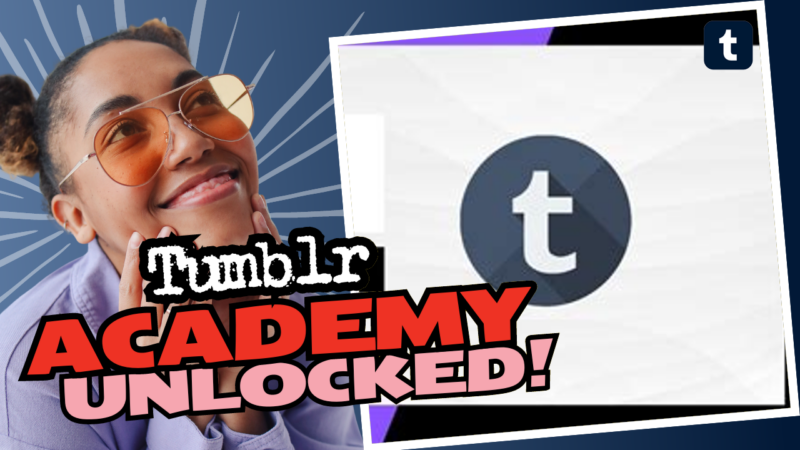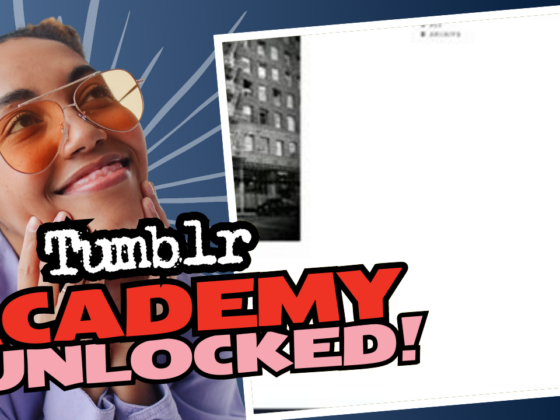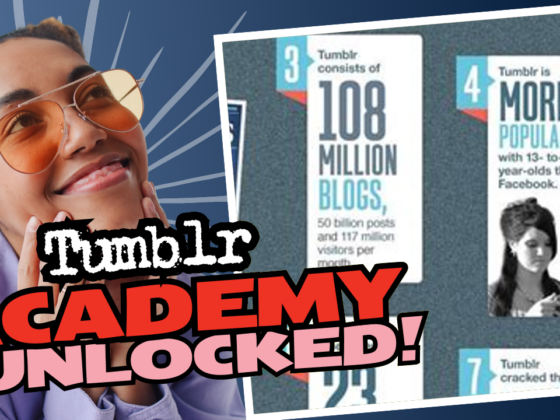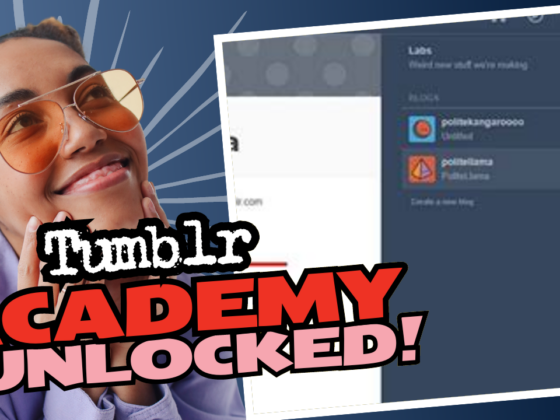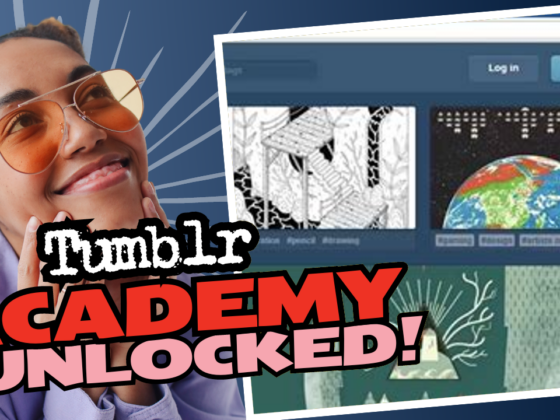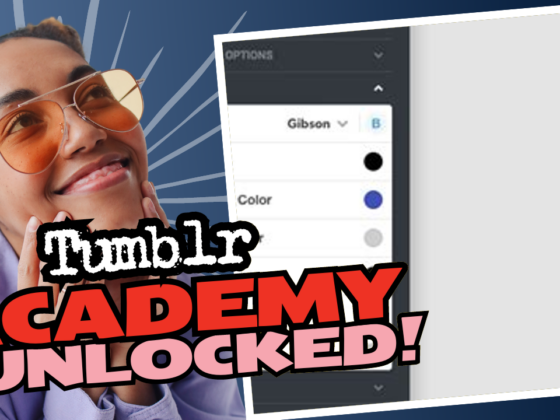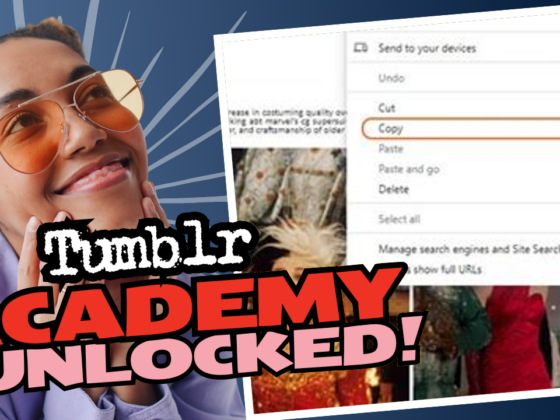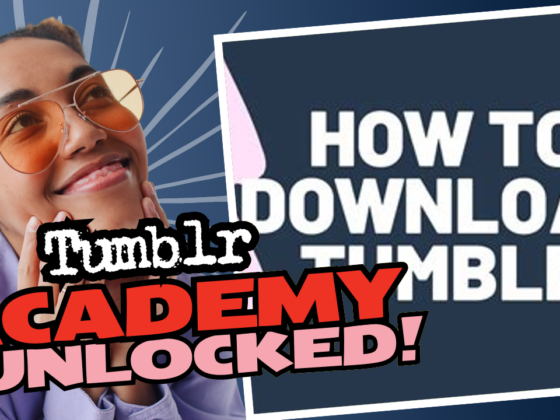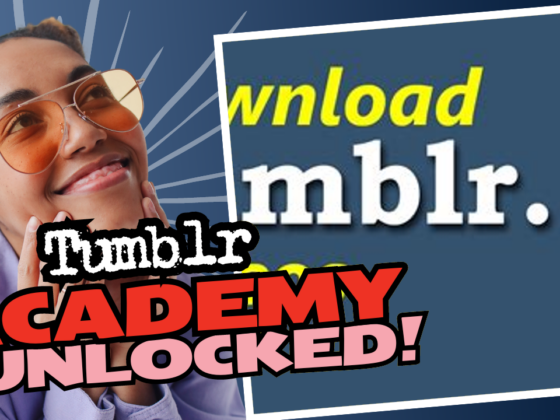Is “Tumblr” Actually a Word?
Ah, “Tumblr.” Say it out loud. Tumb-lur. It’s whimsical, it’s iconic, and it’s the digital graveyard of many an excellent meme and cat gif. But before we dive into the chaotic abyss that is this question, let’s clear the air: “Tumblr” is indeed a word, but not in the traditional sense of language. In essence, it’s the name of a microblogging platform that has gained a cult following. So, it’s more than just a word. It’s almost a lifestyle—a vibe, if you will.
The Origin of Tumblr
Originally founded in 2007 by David Karp, this platform allows users to post multimedia content in a user-friendly format; it’s like a digital scrapbook, where you can combine text, images, quotes, links, audio, and video. Talk about a buffet of content! It quickly became a hub for artists, writers, and memes, giving rise to some of the internet’s most beloved phenomena, such as “on this day in internet history” and “if you reblog this you’re legally obligated to be my friend.” A little hint for you: just saying, it works like a charm.
The Tumultuous Role of Tumblr in Language
Now, curious minds like yours may wonder, “Has Tumblr changed the way we use words?” Well, that’s a fantastic question! The answer is not just yes, but a resounding heck yes! Social media platforms, including Tumblr, have a sneaky habit of redefining language in real-time, like a shapeshifter at a carnival. For example, you might find the term “literally” being used in the most figurative sense imaginable, thanks to yep, you guessed it—platforms like Tumblr.
So, let’s unpack that. The overuse and abuse of words on Tumblr and similar sites have led to an evolution in their meanings. It’s like watching your neighbor’s cat slowly swipe your lunch! For instance:
- Literally: Once strict and precise, now it’s as flexible as a yoga instructor on a quest for enlightenment.
- Egregious: This word originally meant something exceptional (in a good way) and now it’s landed firmly in the “you’ve messed up big time” territory. So, if you call someone’s behavior “egregious,” it usually means they’re in hot water.
Language Funhouse: The Role of Other “Interesting” Words
And while we’re here gushing about etymology, have you caught wind of the other wacky words floating around in the ether? Because some of these are just too good to keep hidden:
- Cornobble – A term signifying “to hit with a fist.” Picture someone taking a swing like they’re in a bad action flick. (P.S: You probably won’t see “cornobble” in your next Scrabble game; word nerds everywhere weep!)
- Formicate – No, this doesn’t mean fornicating, so chill. It’s a fancy way of describing that creeping sensation of bugs crawling on your skin. Eww!
- Rhotacism – Quite the fancy terminology, this has to do with a speech impediment that prevents someone from pronouncing the letter “R”. It’s the opposite of that peculiar fear you have when bugs crawl on you!
- Eatable vs. Edible – Eatable refers to food that isn’t perfect but you’re still game to scarf it down. Edible? Just means it won’t kill you. Talk about lower standards!
- Overmorrow & Ereydays – These nifty words mean “the day after tomorrow” and “the day before yesterday.” Wouldn’t it be cool to sprinkle these into your daily chat and confuse your friends?
The Tumult of the Internet Language Landscape
When you step back and gaze into the rabbit hole that is internet vernacular, it becomes clear how platforms like Tumblr and others shape our language. Just look around; slang evolves faster than you can say “cornobble.” If I threw out terms like “lit,”“stan,” or “snatched,” you probably wouldn’t bat an eye! Each of these has been shaped by social media or pop culture, and that’s the beauty of being part of this modern digital age.
The Power and Pitfalls of Language Evolution
Of course, let’s not sidestep the chaos that sometimes ensues from this linguistic evolution. Words can become utterly discombobulated—identity crises on a societal scale, if you will. Unpacking language’s quirky twists and turns can lead to hilariously awkward conversations. Imagine someone confidently declaring the phrase “I literally died” while on a first date. Awkward! They don’t literally mean they invited the reaper over for tea, right? But there you go, that’s how the game is played in this modern linguistic space.
To Conclude: Is Tumblr Just a Word or More?
So, is “Tumblr” merely a word? Not by a long shot! It embodies a community, a culture, and a unique way of interacting with the world. It showcases the twinkling potential of words to evolve and shapeshift right before our eyes, like the beloved magical beings we only read about. Not to mention, it’s a testament to how language is fluid and ever-changing, oftentimes reflecting our cultural shifts and societal norms.
Let’s end with a little food for thought. Think about all the cornobbled conversations where everyone misuses common words, all thanks to platforms like Tumblr. You can easily confuse Shakespeare if he suddenly saw what we’re calling “literally” these days! So go forth, explore this wondrous landscape of language, and maybe even throw in a couple of “overmorrow”s and “egads” next time you chat. Who knows, you might just start a linguistic revolution. Keep it eccentric, my friends!

